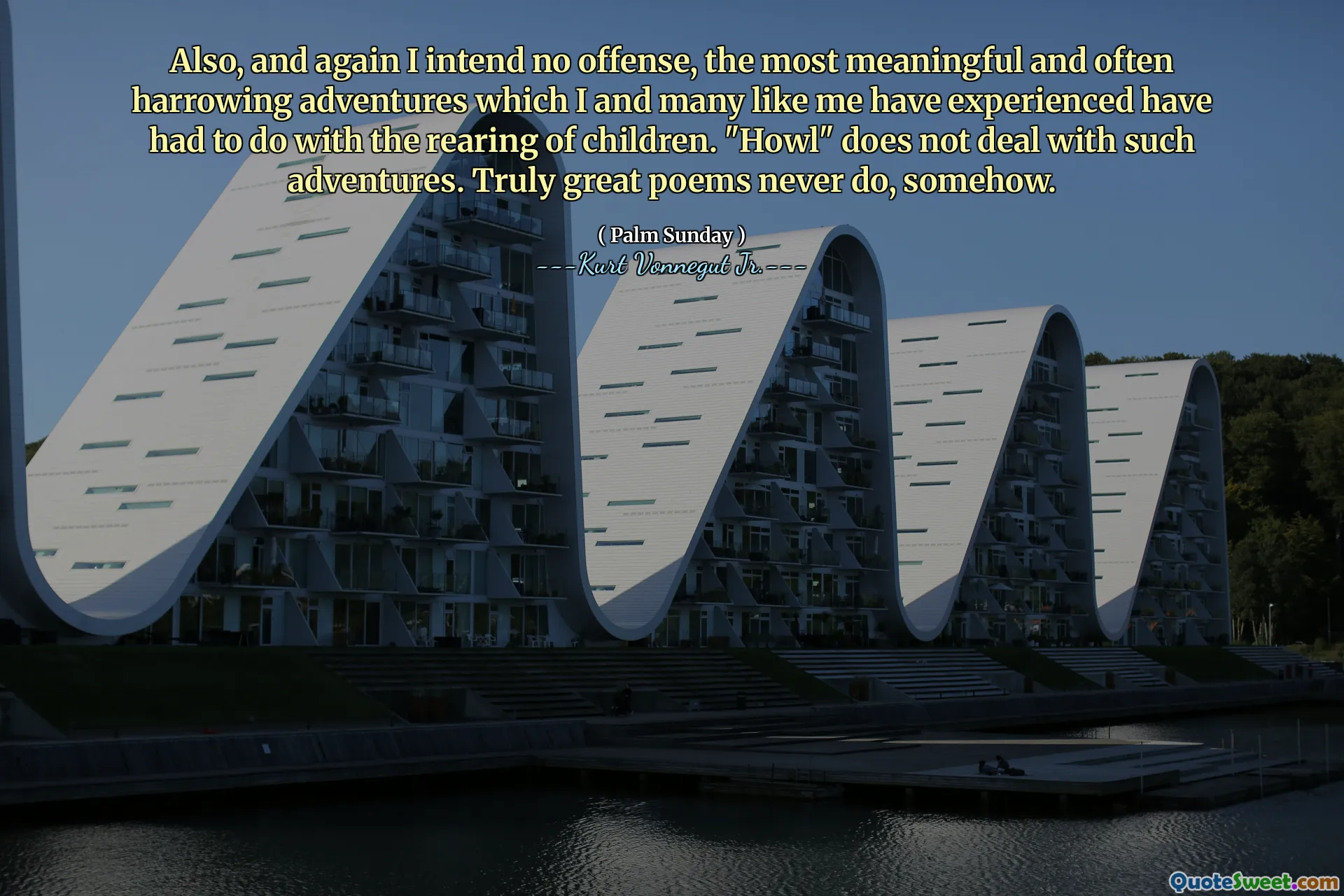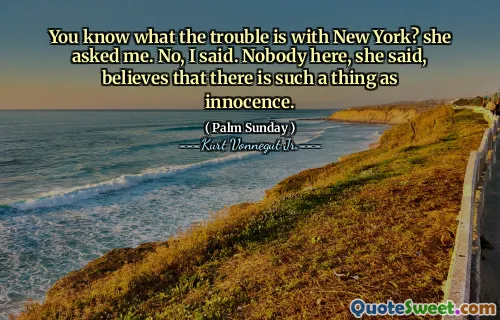
Also, and again I intend no offense, the most meaningful and often harrowing adventures which I and many like me have experienced have had to do with the rearing of children. "Howl" does not deal with such adventures. Truly great poems never do, somehow.
Kurt Vonnegut Jr. reflects on the profound yet often difficult experiences that come with raising children. He implies that while these moments are deeply meaningful, they typically fall outside the realm of what is traditionally captured in poetry. The emotional depth and complexities of parenthood contrast with the themes often celebrated in great poems.
Vonnegut suggests that significant life events, such as parenting, are not adequately portrayed in high art like poetry, which tends to focus on different subjects. He points out that works like "Howl" do not encapsulate the intricate joys and struggles of family life, hinting at a disconnect between true personal experiences and artistic expression.








